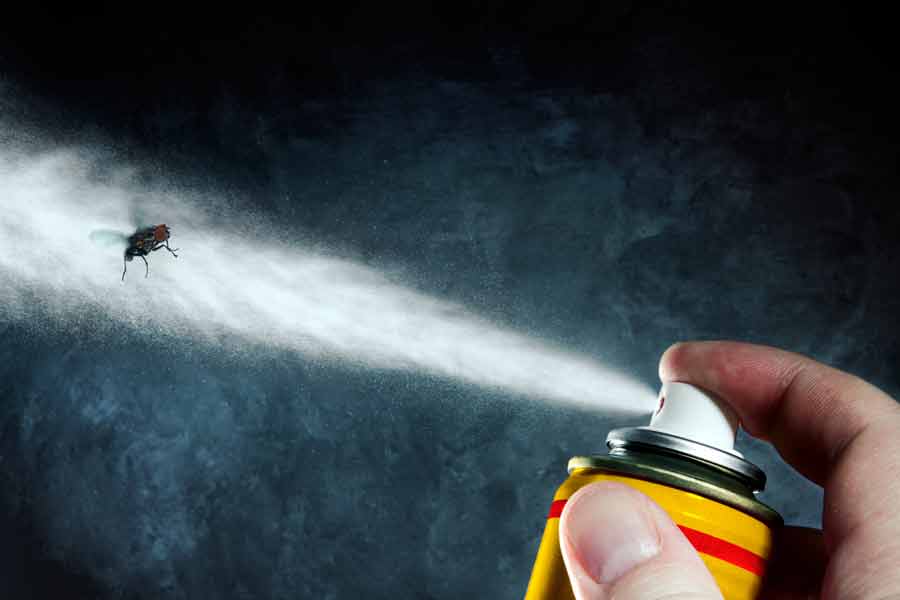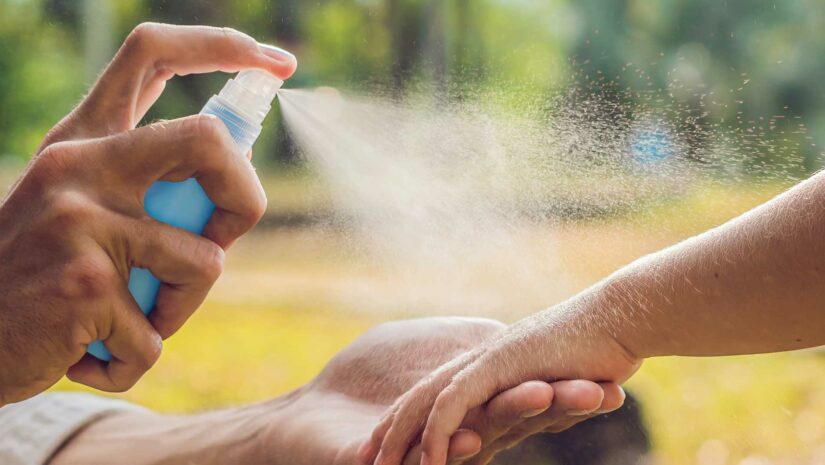If there is anything that we don’t love about the great outdoors, it’s the buzzy and creepy insects that disturb us and make us sick from the tiniest skin bites. Some of the diseases that can be contracted from insect bites include the Zika virus and the West Nile Virus (which can be carried by mosquitoes) and Lyme Disease (which are carried by ticks).
According to the Centers for Disease Control and Prevention (CDC), the number of insect-borne diseases—and the number of places they’re spreading to—is increasing. That being said, applying insect repellent and preventing bug bites has become more important than ever.
But with so many brands and products to choose from, how would you know which products are most effective and won’t be harmful to your health? Read on to learn the answers.
Tips for Choosing the Best Insect Repellent

Look for safety tested products
Most (if not all) insect repellents that you’ll find on store shelves have been assessed by the CDC and Environmental Protection Agency (EPA), so they’re sure to be safe and efficient. If the seller is suspicious, stay on the safe side and avoid buying the product. You can verify a repellent’s efficacy by remembering the next tip.
Check for recommended active ingredients
You might not think of doing it, but read the label carefully before buying it. Look for active ingredients like DEET, picaridin, oil of lemon eucalyptus, IR3535, and 2-undecanone (methyl nonyl ketone). These ingredients are all CDC and EPA-recommended. The first three ingredients (DEET, picaridin, and oil of lemon eucalyptus) can be found in some of the best insect repellents out there.
Although there are some warnings against DEET, it’s important for consumers to know that side effects like skin rashes and nausea are usually caused by overexposure and that it is a safe ingredient even for pregnant women and children older than 6 months old—as long as they are used as directed.
Be wary of “natural” insect repellents
In some repellents, you may find other common, more “natural” ingredients like citronella oil, peppermint oil, lemongrass oil, and other essential plant-based oils that claim to ward off disease-carrying mosquitoes. Know that these are not very effective in providing long-term protection. The only oil-based ingredient that has been tested to work well is the natural oil of lemon eucalyptus.
Consider the concentration
Aside from the ingredients, it’s important to check for its concentration. For example, products with 15% to 30% DEET will provide reliable protection for up to eight hours. You may check out the following table for the number of protected hours that you can get from each active ingredient and varying percentages of concentration:
| Active Ingredient | Concentration | Hours of Protection |
| DEET | 5% – 10% | 2 to 4 hours |
| DEET | 15% | 6 hours |
| DEET | 25% – 30% | Up to 8 hours |
| Picaridin | 20% | Up to 8 hours |
| Oil of Lemon Eucalyptus | 30% | 6 to 7 hours |
Don’t prioritize the brand or packaging
When choosing an insect repellent, what truly matters is the type and concentration of the active ingredient and not the brand name or what form it comes in. You’ll be surprised how wipes can be more effective than some sprays and lotions when you read their labels and realize that the former contains the right concentration of DEET, picaridin, or lemon eucalyptus oil while the others don’t.
Read directions carefully
It goes without saying that you should also read the directions (and not just the label) before you buy and use an insect repellent. This tip is crucial, especially when kids or pets are involved. You also won’t be wasting money on a product that you won’t need or can’t use.
Do a skin test
Insect repellent can cause skin irritation in some people. If possible, do a skin test to make sure that the product will not cause any rashes even when used as directed. The best mosquito repellent should protect you from bites without causing irritation.
Recommended Insect Repellents
As advocates for wonderful and adventurous outdoor experiences, Leisure Pro carries a variety of insect repellents—bug sprays, lotions, and wipes—that you can use for long-lasting protection against those pesky pests. You can check them out below:
Sunsect Sunscreen & Insect Repellent

Sunsect makes insect repellent products in lotion form. They protect you against mosquitoes that could be carrying the West Nile Virus and have an added sunscreen ingredient to also protect your skin from the sun. However, you shouldn’t use Sunsect as a sunscreen (which needs to be reapplied every two hours) as this could cause overexpose to the chemicals.
Ben’s Insect Repellent

This popular brand of insect repellents is known to keep both mosquitoes and ticks at bay. Some of them have 30% DEET concentration, can last up to 100 pumps, and come in very handy sizes for personal use and occasional outdoor trips.
Natrapel Mosquito Repellent

Natrapel products come in a spray bottle form and as wipes that you can use to properly spread the product onto your exposed skin. But like most insect repellent products, they shouldn’t be applied on clothing to prevent staining and damage.
Repel Insect Repellent Spray

Repel produces a lot of sprays, and one of them is well known for having the oil of lemon eucalyptus (30%) as its main active ingredient. Based on the table above, this handy outdoor insect repellent can last for up to eight hours. The brand even offers a pen-sized spray that fits in your pocket!
Repel Sportsmen Max Insect Repellent

Repel has a separate line of insect repellents called the Sportsmen Max. Not only do they provide maximum protection but they also come in a non-greasy formula that resists perspiration, making them perfect for more active users and athletes.





